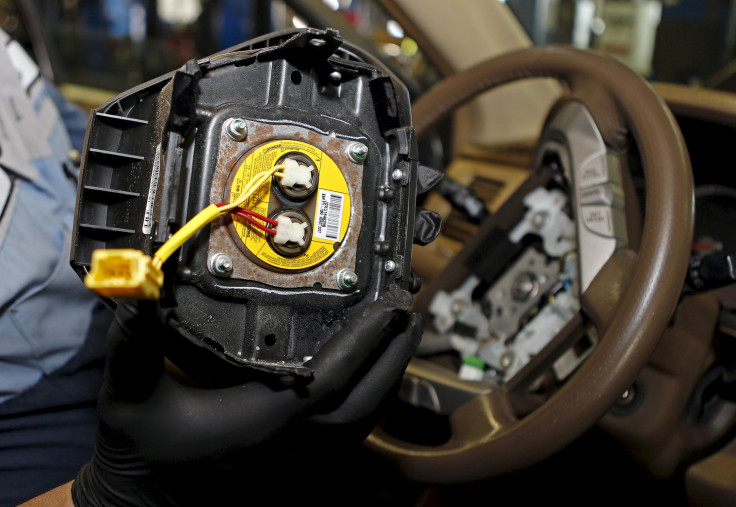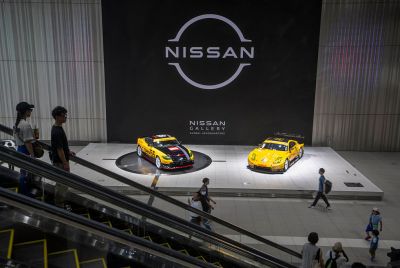Takata Corp. Air Bag Recall: Japanese Manufacturer Recalling Up To 40 Million More Inflators In US Vehicles

This story was updated at 2:15 p.m. EDT.
The U.S. Department of Transportation’s National Highway Traffic Safety Administration said Wednesday it is expanding and accelerating its recall of Takata air bag inflators.
The agency said it is requiring Takata to recall 35 million to 40 million additional inflators in U.S. vehicles, in addition to the 28.8 million inflators previously recalled. The expanded recall, which is planned to take place in phases between May 2016 and December 2019, will more than double what is already the largest and most complex auto safety recall in U.S. history. Previously, 14 automakers had recalled 24 million vehicles with 28.8 million inflators linked to at least 11 deaths and more than 100 injuries.
NHTSA said its decision "follows the agency's confirmation of the root cause behind the inflators' propensity to rupture."
A NHTSA official said Tesla Motors Inc., Fisker Automotive and Jaguar Land Rover will recall vehicles for Takata air bag inflators.
In recent days, officials from the NHTSA told Takata it needs to expand the recall based on the government's determination of the root cause of the problems, sources briefed on the matter said.
“Today’s action is a significant step in the U.S. Department of Transportation’s aggressive oversight of Takata on behalf of drivers and passengers across America,” Transportation Secretary Anthony Foxx said. “The acceleration of this recall is based on scientific evidence and will protect all Americans from air bag inflators that may become unsafe.”
The expansions mean that all Takata ammonium nitrate-based propellant driver and passenger frontal air bag inflators without a chemical drying agent, known as a desiccant, will be recalled.
The use of a drying agent is key, as the New York Times reported Tuesday:
At issue is Takata’s use of a compound called ammonium nitrate, which can become unstable over time or when it is exposed to moisture. Takata has wrestled with the makeup of the compound over the years, eventually adding a drying agent to make it more stable. The new recalls focus on airbags that do not have the drying agent.
Scott Upham, founder and chief executive of the automotive consulting firm Valient Market Research, said that the wider recall was an admission by Takata that its use of ammonium nitrate — a cheap, but potent, compound more often used at large-scale sites like coal mines — was a safety risk.
The new recalls will prioritized by age and risk of exposure to high humidity and phased in through 2019. It comes as automakers are still working to get enough supply of replacement parts to meet the current demand for recalls.
There are no deaths linked to any of the new inflators being recalled. Agency officials said at a briefing that they did not believe there are any injuries linked to the new air bag inflators being recalled.
Last month, NHTSA said there were about 85 million unrecalled Takata air bag inflators in U.S. vehicles that would need to be recalled by 2019 unless the company can prove they are safe.
NHTSA and its outside expert reviewed the findings of three independent investigations into the Takata air bag ruptures and confirmed the findings on the root cause of inflator ruptures. A combination of time, environmental moisture and fluctuating high temperatures contribute to the degradation of the ammonium nitrate propellant in the inflators.
The recall expansion does not include additional inflators that include a chemical desiccant that absorbs moisture. There have been no reported ruptures of the desiccated inflators, but NHTSA Administrator Mark Rosekind said the agency could order a recall if new facts emerged.
Data from Reuters were used to report this story.
© Copyright IBTimes 2025. All rights reserved.





















